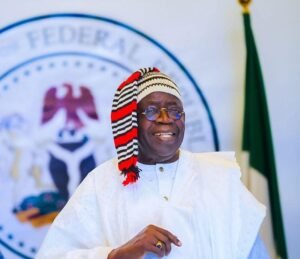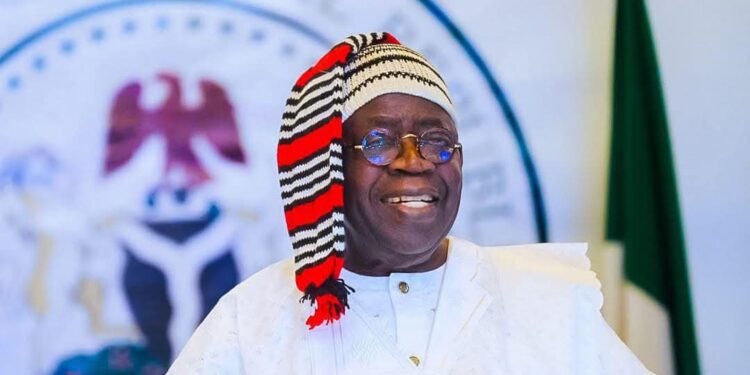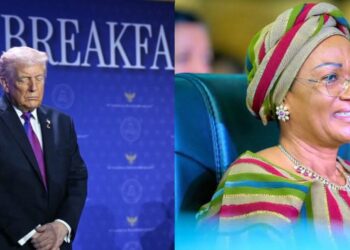
By Ibrahim Kegbegbe
The ongoing crisis within the Lagos State chapter of the All Progressives Congress (APC) has escalated beyond the control of the Governor’s Advisory Council (GAC), a body originally established by President Bola Ahmed Tinubu during his tenure as governor. With internal divisions now threatening the party’s stability ahead of the 2027 general elections, it is imperative that Mr. President personally intervenes to prevent further political damage.
The Role of the GAC in Lagos Politics
The GAC, led by its chairman, Prince Tajudeen Oluyole Olusi (OON), serves as the apex decision-making body in Lagos APC. It consists of prominent political figures, including former Speaker of the House of Representatives, Rt. Hon. Femi Gbajabiamila; ex-Governor and former Minister of Works and Housing, Babatunde Fashola; Speaker of the Lagos State House of Assembly, Rt. Hon. Mudashiru Obasa; ex-Speaker Adeyemi Ikuforiji; and former Deputy Governor, Mrs. Idiat Oluranti Adebule.
Other influential members include veteran politicians and technocrats such as Otunba Henry Ajomale, Prince Abiodun Ogunleye, Cardinal James Odunmbaku, Otunba Bashiru Alebiosu, and Asiwaju Olorunfunmi Bashorun. The council was designed to provide leadership, maintain party unity, and resolve conflicts within the APC structure in Lagos. However, the current crisis has exposed the limitations of its influence, making presidential intervention crucial.
Why Tinubu’s Intervention is Necessary
The primary point of contention revolves around the leadership of the Lagos State House of Assembly. Rt. Hon. Mudashiru Obasa, the current Speaker, is facing intense opposition within the party, which threatens to weaken APC’s grip on Lagos State. If the crisis is not swiftly managed, the party risks experiencing the same fate it suffered in the 2023 presidential election when the Labour Party secured a shocking victory in Lagos.
Obasa is not just another politician; he is one of the last remaining politically relevant and loyal Tinubu allies in Lagos West Senatorial District. Historically, Lagos West has been a powerhouse of APC’s political machinery. Losing control of this district would significantly impact APC’s electoral fortunes in 2027, both at the state and national levels.
The Decline of Key Tinubu Loyalists in Lagos West
A closer look at Tinubu’s past political allies reveals a troubling trend:
1. Babatunde Raji Fashola – Once a formidable force in Lagos politics, Fashola has gradually distanced himself from the core political structure, focusing more on governance than grassroots politicking. His influence within Lagos APC has significantly waned.
2. Akinwunmi Ambode – Despite being a former governor, Ambode was denied a second term by the GAC, effectively sidelining him from Lagos politics.
3. Rauf Aregbesola – The former Osun State governor and ex-Minister of Interior was a dominant political figure from Alimosho Local Government in Lagos West. However, his fallout with Tinubu and eventual suspension from APC in Osun State have rendered him politically inactive within Lagos.
4. Solomon Olamilekan Adeola (Yayi) – Once a strong force in Lagos West politics, Yayi has relocated his political base to Ogun State, where he now serves as Senator representing Ogun West.
5. Idiat Oluranti Adebule – The former Lagos Deputy Governor is now a Senator for Lagos West, but her political influence does not match that of Obasa in the district.
With Aregbesola sidelined, Yayi out of Lagos, and Fashola politically inactive, Obasa remains the last significant APC stronghold in Lagos West. His removal as Speaker would create a leadership vacuum that could weaken APC’s dominance in the state.
The Political Stakes for Tinubu in 2027
The 2023 presidential election result in Lagos was a warning sign for Tinubu and APC. For the first time, the ruling party lost the state to an opposition candidate, signaling growing discontent among Lagos voters. If APC continues to alienate its key loyalists, especially in Lagos West, it risks further electoral losses.
Tinubu’s political base has always relied on a carefully managed structure of loyalists across various districts. The strategic importance of Lagos West cannot be overstated—it is the largest senatorial district in Lagos and a critical voting bloc. Without strong leadership in this zone, APC could face serious challenges in both the governorship and presidential elections in 2027.
Reinstating Obasa as Speaker is the Best Political Move
In conclusion, given the current political climate, Tinubu must act decisively to stabilize APC in Lagos. The removal of Obasa as Speaker would be a self-inflicted wound, further weakening the party’s structure in a key stronghold. By ensuring his reinstatement, Tinubu can consolidate his political influence, maintain party unity, and prepare APC for a stronger showing in the next election cycle.
Lagos remains the heart of Tinubu’s political empire. If he fails to resolve this crisis now, APC could face an even greater political setback in 2027—one that might not be easily reversible.

















